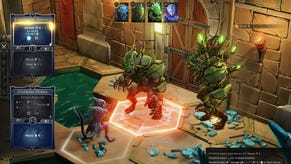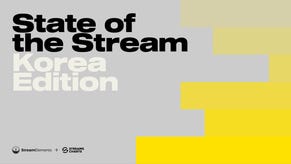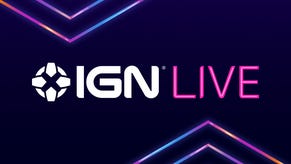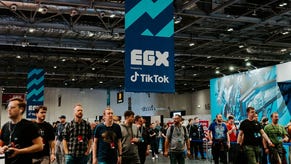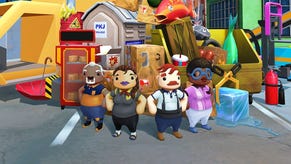A second chance for Take-Two
10 Years Ago This Month: A shareholder revolt rights the ship for the Grand Theft Auto publisher in the wake of Hot Coffee
The games industry moves pretty fast, and there's a tendency for all involved to look constantly to what's next without so much worrying about what came before. That said, even an industry so entrenched in the now can learn from its past. So to refresh our collective memory and perhaps offer some perspective on our field's history, GamesIndustry.biz runs this monthly feature highlighting happenings in gaming from exactly a decade ago.
Takeover for Take-Two
Ever since the breakthrough success of Grand Theft Auto III, Take-Two Interactive has essentially been The House That GTA Built. But 10 years ago, that house built on the foundation of Rockstar's biggest franchise was in rough shape. Apart from Civilization studio Firaxis, the company was fraught with concerns. Whatever 2K Sports did right critically was being offset by the financial impact of its ill-advised third-party exclusivity deal for Major League Baseball. Meanwhile, 2K Games was swinging and missing on project after project, with forgettable fare like Prey, Family Guy, and Ghost Rider struggling next to film adaptations for The Da Vinci Code and the dreadful Fantastic Four: Rise of the Silver Surfer. Even Rockstar wasn't its usual hit-producing self, coming off the well-regarded but commercially unremarkable Bully and Table Tennis.
On March 1, 2007, Take-Two announced a 2006 fiscal year loss of $185 million. The following week, reports first surfaced of a possible shareholder revolt to reshape the company's board of directors and oust CEO Paul Eibeler, with speculation being that the company would then sell all of itself or at least certain parts of the business to the highest bidder. By month's end, Eibeler and the board were indeed out, replaced by current chairman and CEO Strauss Zelnick and a new group of directors with a strategy to turn the company around.
After the announcement of 2006's fiscal year losses, Michael Pachter of Wedbush Morgan (now Wedbush Securities) reiterated his advice to shareholders to sell, saying the company was overvalued at its share price of about $17. After the first whispers of a shareholder revolt hit headlines, the company's stock jumped to nearly $25. The following decade under Zelnick's guidance has had ups and downs, but the company is undeniably in a better place right now, with a more diversified lineup and stocks that closed yesterday's trading at $58.73.
Blasphemii
Twitter didn't really take off until the South by Southwest festival in Austin, TX in March of 2007, but the prior week's Game Developers Conference in San Francisco showed that this industry was already perfectly capable of blathering regrettable thoughts to a massive audience without a fancy new social media service, thank you very much.
The heart of the storm was a GDC "Rant" session, a slightly more tongue-in-cheek predecessor to today's MicroTalks format. During his portion of the program, SpyParty developer (then best known for his work on Spore) Chris Hecker called the darling of the hour, Nintendo's recently launched Wii, "a piece of shit," an underpowered console he likened to two GameCubes duct-taped together. If that weren't contentious enough, he also questioned Nintendo's dedication to games as a serious art form.
Hecker was perhaps overstating his antipathy for comic effect in the spirit of the rant session, but that did little to temper people's reactions to the declaration. In a later GDC session on character animation, Hecker retracted his comments and apologized for them. You might think that would be the end of it, but Hecker was still answering questions about it (and drawing heat from comments sections for it) years later.
Thankfully, now that Twitter has colonized the games industry, we can compress the cycle. The outrage, backlash, and retraction that used to take days can now be completed in a matter of minutes, or even seconds. Of course, since the internet neither forgets nor forgives, the fallout of a joke gone wrong or a horrid lapse in judgment remains indefinite.
News that Time Forgot
- Everything got a Wii port in 2007. Even the Scarface game.
- Xbox Live Arcade games used to be limited to 50MB. It took a year and a half after launch for Microsoft to even bump that up to 150MB.
- There was a time when "Traveller's Tales will make more Lego games" was considered news worth reporting rather than an immutable fact of life.
- Microsoft's unveiling of the HDMI-capable Xbox Elite was arguably a precursor to this generation's mid-cycle hardware upgrades.
- SingStar and EyeToy studio Kuju Brighton re-branded as Zoë Mode, a fictitious woman who doubled as the studio's target audience, with Kuju head Ian Baverstock explaining, "We're saying we're about making games for people like this, not just that normal, narrow, 18-24-year-old male age group." The studio has since come around on that normal, narrow, 18-24-year-old male age group, with its most recent projects being the current-gen ports of Marvel: Ultimate Alliance 1 and 2, and Risk: Urban Assault.
- Oh, and the PS3 launched in Europe, which certainly doesn't count as forgotten, but we've covered the state of the PS3 launch era plenty already.


